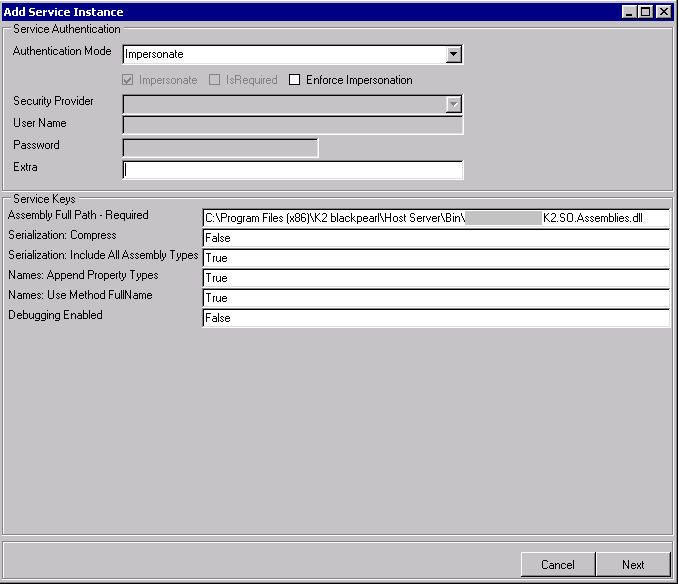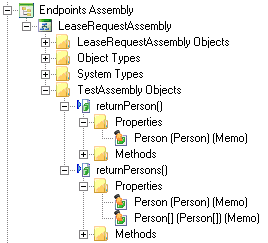Hello,
consider the following datatype:
PERSON
------------
Property: ID
Property: Name
If these objects were stored in SAP or in an SQL database I am able to retrieve them and return a list of persons (basically a two column table, with the first column being the ID and the second column the Name).
However I am having difficulty achieving something similar with the Endpoints Assembly: I can retrieve a list of ints and get a 'one column table'. But when I use the following function it DOES NOT retrieve a 'two column table' but instead returns a list of serialized objects.
public static void returnMultipleLists(out Int32[] ID, out String[] Name) {
ID = new Int32[] {1,2};
Name = new String[] {"Ben","Tim"};
}
I expect it to return
ID | Name
-------------------------
1 | Ben
2 | Tim
Any ideas how to achieve this?







